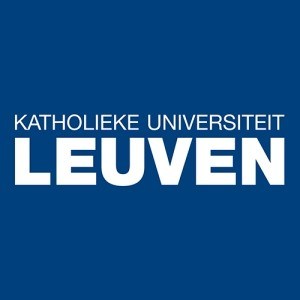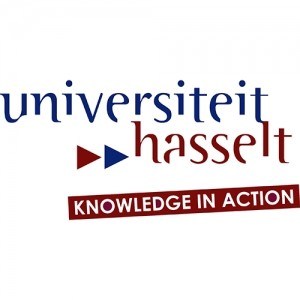Photos of university / #kuleuven
Urbanism and Strategic Planning at KU Leuven offers a comprehensive and in-depth education designed to prepare students for the complex challenges of designing, developing, and managing urban environments in a sustainable and innovative manner. This program combines theoretical knowledge with practical skills, emphasizing interdisciplinary approaches to ensure graduates are well-equipped to analyze and shape the physical, social, economic, and environmental aspects of cities and metropolitan areas. Students will explore the principles of urban development, spatial planning, land use management, and policy making, gaining insights into how spatial interventions influence social cohesion, economic vitality, and ecological health. The curriculum covers a wide range of topics, including urban design, transportation planning, environmental sustainability, smart city concepts, and governance frameworks. Through a combination of lectures, workshops, case studies, and fieldwork, students develop critical thinking and problem-solving abilities, enabling them to formulate strategic solutions tailored to specific urban contexts. The program also emphasizes the importance of participatory planning processes and stakeholder engagement, preparing students to work collaboratively with government authorities, private sector actors, and local communities. Graduates will be capable of pursuing careers in urban planning agencies, consultancy firms, local governments, research institutions, and international organizations, where they can influence policy development and contribute to sustainable urban growth. The program is taught by experienced professionals and academics from KU Leuven, one of Europe's leading universities, ensuring an educational experience that integrates cutting-edge research with practical application. With a focus on innovation and sustainability, the Master's in Urbanism and Strategic Planning seeks to shape the next generation of urbanists committed to creating resilient, inclusive, and environmentally responsible cities worldwide.
General Compulsory Courses
- Studio Concepts and Analysis
- Theory and Practice of Urbanism since 1945
- Relevant Practice & Introduction to Research Methods & Study Trip
- Strategic Spatial Planning
- Relevant Practice and Study Trip
- Studio Urban Design and Planning
- Project Development and Management
- Landscape Architecture
- Urban Design Strategies
Options
Students have to choose one of both options.
Spatial Planning
- Human Settlements in Development
- Studio Strategic Spatial Planning
- Critical Review of Sustainable Development Policies and Planning
- Institutional Aspects of Spatial Planning
Urbanism
- Studio Urbanism
- Landscape Urbanism
Optional Courses
- Modernity and the Architecture of the City
- Urban Studies: Research Methodology, part 1
- Human Settlements in Development
- Design of Infrastructure
- Geomatics for Urbanism and Spatial Planning
- Independent Study
- Economic and Sustainability Aspects of Architectural and Urban Design
- Urban Anthropology
- Urban Ecology and Green Management
- Verkeerskunde
- Critical Review of Sustainable Development Policies and Planning
- Project Management: Building Economics and Cost Control
- Landscape Urbanism
- Project Evaluation & Effect Assessment
- Institutional Aspects of Spatial Planning
- Colonial & Postcolonial Urbanism
- Urban Studies: Research Methodology, part 2
- Independent Study
- Cultural Anthropology: Material Culture
- Culture Philosophical Topics in Architecture and the City
- Housing
- Conservation of Architectural Heritage: History, Theory and Practice
Master's Thesis
Requirements
- Be a graduate (with minimum 5 years of university education) in Architecture, Architectural Engineering, Civil Engineering, Urban or Physical Planning with a good academic record (normal level of 70 %, of GPA 2.8/3.0, second class upper). The relevance of the academic record will be compared for each university and/or country of origin.
- Have a good command of English, certified by a score on al language test (e.g. TOEFL/IELTS) indicating a C-1 level on the Common European Framework of the Council of Europe (www.culture2.coe.int/portfolio). Further information about language requirements is available on our web pages at www.kuleuven.be/english/admission/language.htm. Candidates who can prove that their entire university education was taken in English (for example in a Commonwealth country) can be exempted from this requirement.
- Submit a letter of motivation and a portfolio which clearly demonstrate their sound professional intentions and relevant experience.
- Applicants with some years of relevant professional experience will be preferred.
- All applicants (EEA and non-EEA) will have to pay an application fee of 50 € to process their file.
- PDF scans of your diplomas and transcripts of academic records
- PDF scan of the translation of your diploma and official transcripts
- The PDF scans of the TOEFL or IELTS certificates have to be uploaded in the web application Applicant. The original TOEFL or IELTS certificates have to be sent directly by ETS or by the official IELTS test centre administered by The British Council or IDP Education to International Admissions and Mobility at KU Leuven. Alternatively, you can also request ETS or the British Council to make your test result available to KU Leuven online, so we can verify your result via the online verification tool.
- If you still have to take the test by the time you want to submit your application file, upload a proof of registration for the TOEFL or IELTS test in the meantime. The proof of registration should mention the date when you will be taking the test.
- PDF of the proof of payment of the application fee made either via bank transfer or via credit card
- PDF scan of the identity page of your passport
- PDF of your motivation letter (recommended size: one A4 page)
- PDF of your CV
Varsity scholarships and grants are available at KU Leuven for students enrolled in the Urbanism and Strategic Planning programme. These financial aids are designed to support both domestic and international students in covering tuition fees and living expenses. The university offers a range of scholarships based on academic merit, socio-economic background, and country of origin. Additionally, students may be eligible for government or regional grants depending on their nationality and residency status. Many students finance their studies through a combination of personal savings, family support, part-time work, and student loans. KU Leuven also provides information and assistance regarding international financial aid options, including Erasmus+ programs and partnerships with various organizations that support mobility and study abroad experiences. The tuition fees for the programme vary depending on the student's nationality, with EU students benefiting from lower fees compared to non-EU students. The university encourages applicants to explore all available funding opportunities early in the application process to maximize their financial planning. Moreover, some programmes include internships or project work that can partially offset costs or provide practical experience valuable for future employment. The cost-of-living in Leuven can also be a factor for students, and they are advised to budget accordingly. The university's financial aid office provides guidance and counseling to help students navigate the available options and plan their finances effectively. Overall, KU Leuven aims to make the Urbanism and Strategic Planning programme accessible to a diverse student body through its comprehensive funding and support systems.
The Master of Urbanism and Strategic Planning at KU Leuven is a comprehensive postgraduate program designed to equip students with the knowledge and skills necessary to address the complex challenges of urban development and strategic planning in a rapidly changing world. This program emphasizes interdisciplinary learning, integrating insights from architecture, urban planning, economics, sociology, and environmental sciences to foster innovative solutions for sustainable urban growth. Students will explore theories and methodologies related to urban design, spatial planning, policy development, and community engagement, enabling them to design and implement effective strategies for diverse urban contexts. The curriculum includes coursework on urban resilience, mobility, digitalization in urban planning, and the socio-economic impacts of urban policies. Practical experience is an integral part of the program, with opportunities for internships, project work, and collaborations with urban authorities, civic organizations, and private sector stakeholders. Graduates of this program are prepared for careers in urban planning agencies, governmental institutions, consulting firms, and non-profit organizations involved in urban development initiatives. The program also aims to develop critical thinking and research skills, encouraging students to contribute to academic and practical debates about future cities. With a global perspective, the program addresses issues such as climate change adaptation, smart city technology, social equity, and sustainable resource management, ensuring graduates are well-equipped to lead innovative projects in various urban environments worldwide. KU Leuven's reputation for academic excellence and its strong links with industry and government bodies provide students with valuable networks and opportunities for professional development. Overall, the Master of Urbanism and Strategic Planning prepares graduates to become forward-thinking urban professionals capable of shaping resilient, inclusive, and sustainable cities for the future.



